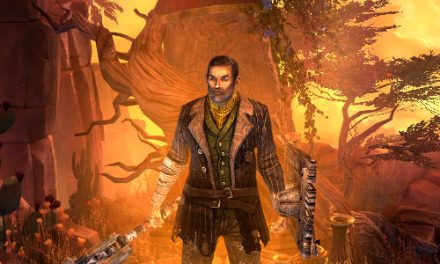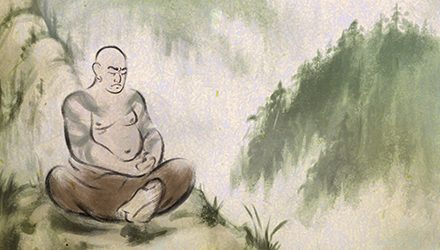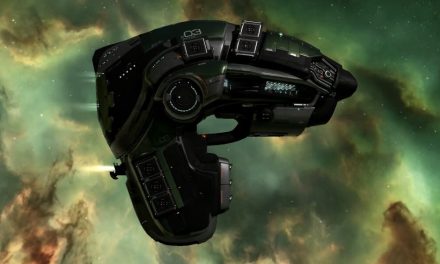Some, arguably most, role-playing games try to ensure that each character class or profession is on reasonably equal footing when it comes to power level and ability. Obviously there are differences and some classes are focused to excel in unique circumstances, but Character A should contribute roughly the same to the group’s overall success as Character B.
Other games throw the idea of parity or balance right out the window, with some classes being explicitly better across the board than others. From a mechanical perspective this presents a very real problem, in that there are mathematical best and worst professions to play. From a story perspective, the power differential isn’t necessarily a bad thing. This post is about how a game’s story benefited from the imbalance, even if the mechanics were hopelessly lopsided.
RIFTS is a complicated, very mechanics-focused game where the designers have openly admitted that they don’t think about balance or fair-play when creating new content. The same group might include a magically-gifted gunslinger, a leyline-walking druid, a seven-foot-tall bipedal cat, and an average Joe who got swept up in the mix. On one hand I give the creators credit for saying at the outset that balancing their game would be all but impossible and so didn’t set the expectation that there would be any sort of parity. On the other hand, if an entire group isn’t focused on the story, and is instead more interested in mechanical efficiency, it can be a wholly frustrating experience for everyone.
In one game, characters were engaged in a downtown battle against extraterrestrial invaders. Laser blasts, magical explosions, robot exosuits, and over-sized juggernauts fought a no-holds-barred war in a major metropolitan area. Some characters could fly, some phase through dimensions, and others absorb damage better than a heavy tank. And then there was Old Man Jackie.
Old Man Jackie was a drifter, made homeless after a twenty-foot-tall robot crushed his cardboard box during the battle. After the battle he followed the group around, shaking his fist and demanding recompense for the loss of his house. The group adopted the drunkard as their team mascot, and though they tried to put him up in nice hotels and magical palaces, he preferred to stay outside in the open weather, cursing the drug-fueled mech-pilot that “ruined his life.” He wasn’t going to let the group go without paying for his damages, and they wanted to see how long and far he would go with them.
One party member was a Merlin-type, twisting the magical energies of the world to his will. Another could create fire with her mind and fly through the air at a whim. There was the enormous robot suit with dozens of ultra-powered armaments, and even stranger creatures. The question became “what can Old Man Jackie do?”
Old Man Jackie’s character class was “Vagabond.” He started with no money, almost no skills, severe addictions, and one single, solitary ability: “eyeball a fella.” In the face of being able to throw fireballs, warp realities, level whole cities, what did this singular ability do?
Old Man Jackie had a keen eye and with a successful roll could tell if someone had 1) showered recently, 2) had access to money, and 3) could get him booze. Talk about an truly game-breaking power!
Utterly useless in a fight against extra-dimensional invaders, unaccustomed to and uncomfortable in polite society, and unwilling to take hand-outs – only demanding that the group buy him a new cardboard home – Old Man Jackie nevertheless became a true and full member of the group, brightening not only the in-game party atmosphere but also the out-of-game play time, bringing howls of laughter from the other players with his gruff and no-nonsense demeanor, the surly attitude staying strictly in-character.
After nearly a year of traveling together, jumping between planes and unique realities while hunting for the campaign’s big bad, the campaign culminated in a large victory parade with titles and accolades bestowed on the party members. An entire magical city was open to the group, with all of their wants and desires able to be made real.
Going down the line, finally the city’s golden inhabitants turned their attention to Old Man Jackie, asking how the empire could repay him for his contributions to the defeat of an otherworldly horror. Brow furrowed, mouth in a tight frown, he jammed his dirty hands into his even dirtier pockets. Pointing with his stubbly chin at the robot standing next to him, he made a simple demand, the same one he had made almost daily since first entering the party’s life.
“That hunk o’ tin still owes me a new cardboard box!”
The campaign ended with all of us howling with laughter at the grumpy, power-less, and ultimately story-rich character that, mechanically, couldn’t hold a candle to anyone else in the party.
Balance in gaming is a great goal, and too often undervalued by designers, but just because something isn’t balanced doesn’t mean it’s unplayable. For players and groups who are story-focused, even the most “broken” character class, whether positively or negatively, can be a great addition to the team.













